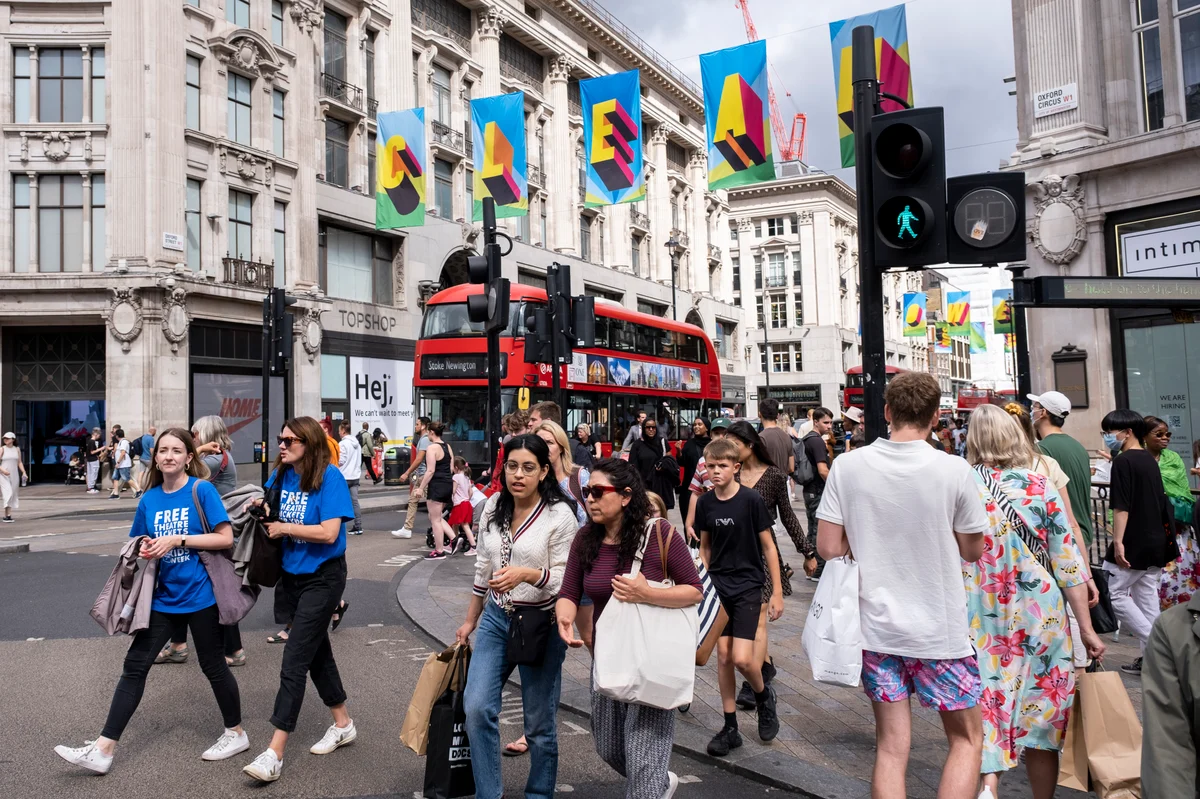London losing billions of pounds of tourist spending to rival European cities says new report
By Jonathan Prynn
Copyright standard

London is rapidly losing ground to cities in France, Italy and Spain in the rivalry to attract high spending visitors from outside the European Union, new data reveals today.
The scrapping of VAT free shopping for foreign tourists in 2021 by the Conservative Government continues to deter travellers from North America, the Middle East and Asia.
Figures from tax‑free shopping specialist Global Blue and major retailers show that spending by non-EU visitors has stagnated at just 75 per cent of pre-Covid levels in the UK, while soaring to 166 per cent of 2019 levels in Spain, 159 per cent in France and 137 per cent in Italy.
If Britain had performed as well as the rest of Europe, it would have seen non-EU visitors spending an additional £2 billion on shopping in 2024, enough to support 40,000 jobs in retail.
This does not include additional broader spending that would be stimulated across the economy by tourists using hotels, restaurants and tourist attractions.
In addition it is estimated that shoppers from within the EU – who were excluded from the scheme before Brexit – would spend an extra £3.65 billion, it is estimated.
The decision, originally taken in 2020 by Rishi Sunak when he was Chancellor has left the UK as the only country in Europe not offering tax-free shopping to international visitors.
Tourist bosses across the capital say that luxury shopping in London is being diverted to cities such as Paris, Milan and Madrid where the ability to reclaim VAT makes goods typically around 15% cheaper than the shop price after fees.
Under the VAT reclaim system, shoppers fill in a form that is validated by Customs officials at the point of departure leading to a refund in cash or on the card used for the purchase.
The loss of sales from foreign tourists in London is compounded by British residents shopping tax-free in the EU. It is estimated that pending diverted from British shops to EU stores has grown from £140 million in 2021 to £730 million in 2024. It is likely to hit £1 billion in 2025.
Over 500 business leaders have called for a rethink on the policy, which has been dubbed a tourist tax.
The figures show that non-EU visitor spending is growing year-on-year in the EU, but has plateaued in the UK.
Spending by visitors from the Gulf states is worst affected, down 27 per cent on 2019 levels in the UK, but up 169 per cent in France, 154 per cent in Spain and 153 per cent in Italy.
Spending by visitors from Southeast Asia is down eight per cent on 2019 in the UK, but up 91 per cent in Spain, 39 per cent in Italy and 24 per cent in France.
Spending by visitors from the US has increased slightly since 2019 in the UK, up ten per cent, but has surged more strongly in Spain, up 66 per cent, France, up 59 per cent and Italy, up 37 per cent.
Last month, VisitBritain released figures from the Government’s annual International Passenger Survey which confirmed that Britain is lagging EU neighbours.
Spending by international visitors in 2024 was down eight per cent in real terms compared with 2019. In France and Spain spending in real terms was around 13 per cent higher than in 2019.
Derrick Hardman, chair of the Association of International Retail, said: “A big gap has opened up between the UK and its EU rivals when it comes to spending by visitors from around the world.
“The cause of this is no mystery — the removal of tax-free shopping by the last government is putting people off coming and spending here.
“What is clear is that there is a massive opportunity for this government, which has promised to pull all available levers to promote economic growth.
“Reintroducing VAT‑free shopping would be a £2 billion win for British retailers, on top of creating an entirely new £3.65 billion EU shopping market. Every region of the UK would benefit. It’s time we capitalised on this opportunity – not watched it slip away.
“All we are asking for is a proper review of the impact of introducing tax-free shopping, in light of all the new and independent evidence that was simply not available in 2020.
“We are confident that this would confirm how beneficial it would be to our economy and public finances.”
However, it is thought highly unlikely that Rachel Reeves will reveal a U-turn on the policy in the November Budget.
The Treasury has cited estimates from the Office for Budget Responsibility that the scrapping of the VAT refund scheme will save the taxpayer more than £500 million next year.



